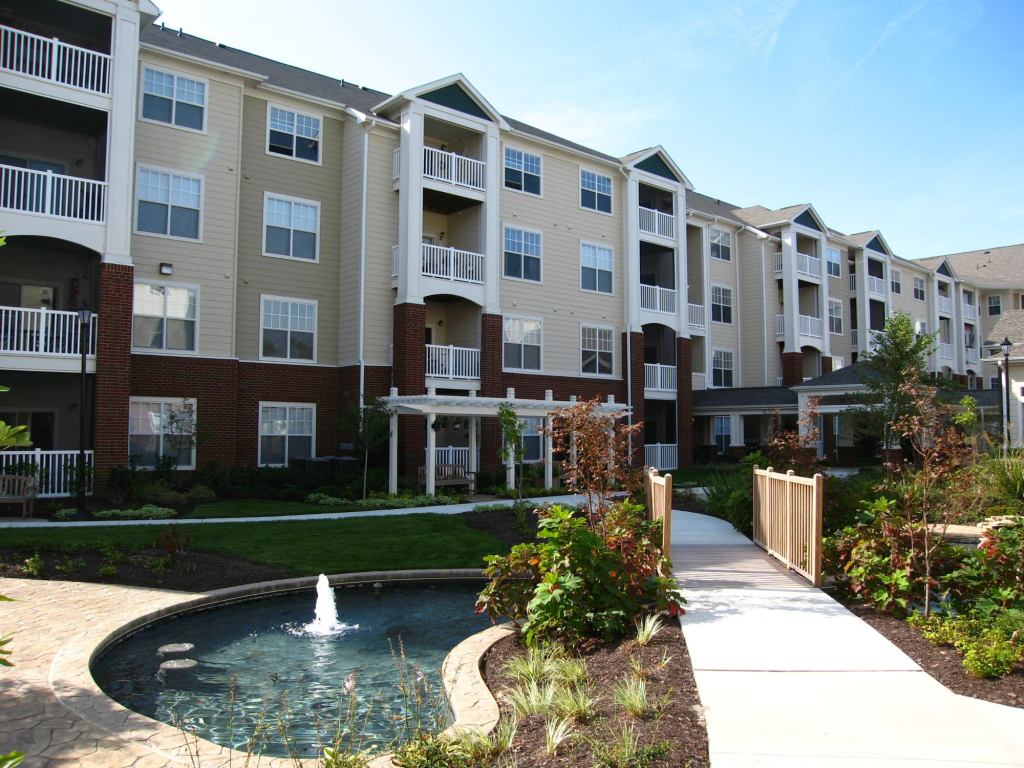“I think [seniors housing] is a great place to be for companies focused exclusively on that space,” Bell says. “[But] it was distracting for us, when we’re focused on being a best-in-class apartment company, to have 1,500 employees in this other division.”
In seniors housing, Bell needed housekeepers, workers to prepare food, individuals to handle regulatory issues, nursing and orderly staff, and, of course, management. “It’s very time-consuming,” Bell says. “There are the regulatory issues and liabilities associated with caring for seniors that you might expect. That entails an awful lot of time.”
End Game
Realizing the operational intensity of seniors housing, these three sectors have recently sought to off-load their properties for an older resident base.
Hotel operators: Bethesda, Md.–based Marriott was once in the seniors living business. “[But] they realized that this isn’t hospitality and hotels,” says Dave Hegarty, president and COO of Newton, Mass.–based Senior Housing Properties Trust (SNH). “There’s real patient care you need to be concerned with.”
Developers: Many merchant developers followed the strategy of building and selling before the downturn. Then, they got stuck. “It’s very different once they build and [then] have to operate [seniors properties],” Hegarty says.
Apartment owners: There aren’t too many companies like Bell Partners anymore. Most of the big apartment firms exited seniors housing a long time ago. “It’s more work than multifamily, where residents are more self-reliant and you simply provide them with a good atmosphere to live in,” Hegarty says.
As part of its reorganization effort, since early June, Bell has made some layoffs at the corporate level in places such as human resources (HR) and information technology (IT). It has also shuffled some employees around. “We ought to be more efficient at the corporate level by having everyone in IT, HR, and corporate management just focus on the apartment sector,” he says.
Bell also thinks the sale will help his executives focus. “Your COO and CFO are spending time in commercial, senior, and apartments,” he says. “If they’re able to apply all of that time to one division, they should be better at it. That goes for transactions people, acquisition guys, disposition guys, and our finance people. By virtue of focusing all of our efforts in one sector, it’s our hope we can achieve our vision of becoming a best-in-class apartment company.”
In fact, it was partly Bell’s divided attention that made the deal attractive to SNH. “Bell is predominately a multifamily owner, operator, and developer,” says Dave Hegarty, SNH’s president and COO. “We believe there’s more potential from these properties given that we’re in this [seniors housing] line of business. There are some efficiencies to be gained and some services to be added.”
Specifically, Hegarty says he can add enhanced Alzheimer’s care, assisted living, and various therapies the properties may not already offer. He also says seniors housing is starting to become more of a “science” in terms of staffing, employee benefits, and food and electricity purchases. “All of those contracts can be brought to the table,” Hegarty says. “Hopefully, we can lower the operating costs and still provide the same quality of service.”
A Good Time to Sell
Though Bell decided it wanted to sell in 2008, that wouldn’t have been the right time to move, with the country entering the Great Recession. But like the multifamily sector, the seniors sector has come back since then. “There’s a huge demand for [seniors portfolios] right now,” says Ben Thypin, a senior market analyst for New York–based commercial research firm Real Capital Analytics (RCA). “Buyers probably figure they can get a huge price.”
